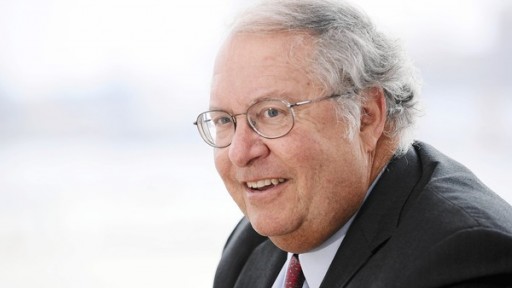- Home
- >
- Great Traders
- >
- Bill Miller – one of the most successful fund managers

Bill Miller - one of the most successful fund managers

Bill Miller is the portfolio manager of the Fund Legg Mason Value Trust, which, under his leadership record one of the longest "winning series" in the history of mutual funds. Between 1991 and 2005, the total return of the Fund exceeds that of the S & P 500 for 15 consecutive years. Miller's fund grew from $ 750 million. In 1990 to more than $ 20 billion in 2006. Miller graduated from Washington & Lee University in 1972 with a degree in Economics. He started working for JE Baker Co and became its treasurer. He joined Legg Mason in 1981 and in 2007 served as chairman and chief investment officer of Legg Mason Capital Management. It also serves as Chairman of the Board of Trustees of the Institute in Santa Fe, a leading center for multidisciplinary research in the theory of complex systems. In November 2006, the chief editor of Fortune Magazine, Andy Serwer, characterized the style of investing Bill Miller as an iconoclast. The fact is that he spent decades studying successful svobodnomisleshti people, and while he became one of them.
Bill Miller describes itself as a value investor, but his definition of value investing is a bit confusing to this some traditional investors. Miller believes that any stock can be precious if it is trading at a discount to intrinsic value.
Individual investors can learn from the application of this principle Miller Investment, which he says is basically a record of 15 years exceeded the yield of the main indices of the Fund Legg Mason Value Trust. He attributes two factors to this success: exhaustive analysis of securities and build a portfolio. In his letter to shareholders of Value Trust for the fourth quarter of 2006, Bill Miller explains how these two factors:
Value investing means really asking what are the best values, and assumes that just because something looks expensive, it really is one, or to suggest that after the price of a particular share is low and is trading at low ratios this is a good deal ... Sometimes growth is cheap and value expensive ... it is not growth or value, but where is the best value ... We build portfolios using the "diversity factor." ... We have a mix of companies whose fundamental factors for evaluation differ. We have a high P / E and low P / E, high price-book value and price-book value. Most investors tend to be relatively non-diversified in terms of these assessment factors, as traditional investors in value are trapped in low grades, and investors in high growth estimates ... It was in the mid-1990s, when we started create portfolios that had greater factor diversification, which became our strength ... we have low P / E, and high P / E, but we own them for the same reason: we think are undervalued. We differ from many investors value the desire to analyze stocks that look expensive to see if they really are. Most, in fact such, but there are many who are not. Depending on whether we are right, we will benefit our shareholders and customers.
"I often remind our analysts that 100% of the information you have about a company represents the past, a 100% valuation of the share depends on the future."
"The market does not reflect available information, as the professors tell us. But just as the mirrored halls of laughter (Funhouse) do not always accurately reflect your weight, markets do not always accurately reflect that information. Usually they are too pessimistic when it is bad, and too optimistic when it's good. "
"What we try to do is to take advantage of the mistakes of others, usually because they are too short-orientated, or react to dramatic events or overestimate the impact of events, and so on."
Varchev Finance
 Varchev Traders
Varchev Traders If you think, we can improve that section,
please comment. Your oppinion is imortant for us.






